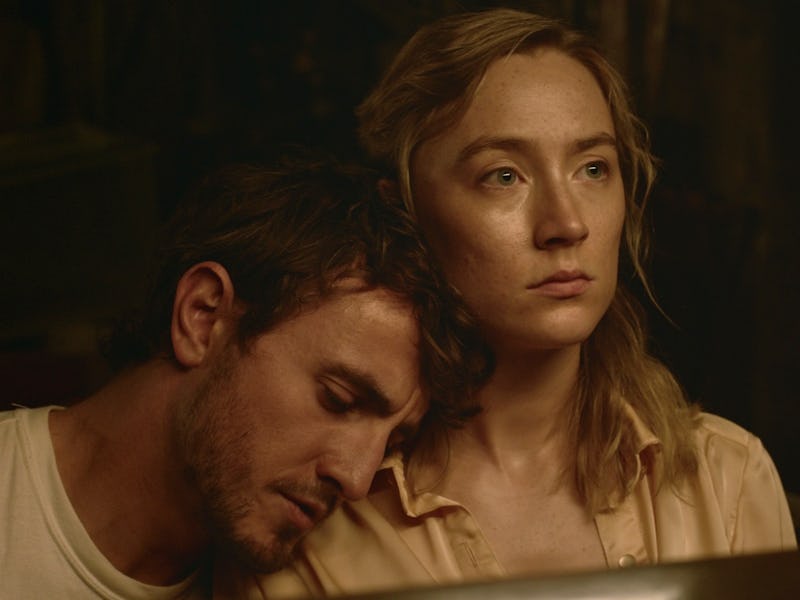The Most Divisive Sci-Fi Movie of 2023 is More Interesting Than You Think
Make up your own mind about this sci-fi drama.

Science fiction is designed, perhaps more than any other genre, to ask questions. Films like Blade Runner and 2001: A Space Odyssey interrogate not only the very idea of “humanity,” but also question what it takes to possess it. Others, like Arrival and Minority Report, find very different ways to explore the nature of fate and contemplate how much authorial control one actually has over the story of their life.
When a husband and wife are forced to consider the possibility of introducing a clone into their relationship in Foe, questions about love and human connection inevitably arise. The ambitious Garth Davis-directed sci-fi drama, which hit theaters in late 2023, takes a decidedly circuitous route to exploring its ideas. While the film received an overwhelmingly lackluster critical response when it was released, too, it’s already garnered a not-insignificant collection of defenders.
Now, several months after its October theatrical debut, the film is available to stream on Amazon Prime Video, which means it’s easier than it’s ever been for first-time viewers to make up their own minds about Foe.
Based on a 2018 novel of the same name by Iain Reid, Foe follows Hen (Saoirse Ronan) and Junior (Paul Mescal), a married couple living in a dystopian version of the Midwest whose lives are turned upside down when Terrance (Aaron Pierre), a representative of a powerful corporation, arrives at their home one night. Terrance informs them that Junior has been selected to work for a prolonged period of time on the construction of a large space station. Taking the strain that Junior’s relocation will place on their marriage into account, Terrance’s company agrees to supply them with an identical clone of Junior to keep Hen company while her husband is away.
In the wake of this development, Hen and Junior are forced to consider the problems and strengths of their relationship more fully than they ever have before. From there, Foe goes to places that are both predictable and not — revealing secrets and truths about its central relationship that may either turn certain viewers off or just intrigue them even more. In order to land all of its biggest swings, the film, which was written by Davis and Reid, has to constantly toe the line between sincerity and deception, vulnerability and ambiguity. It doesn’t always succeed at doing that, and its third act, in particular, suffers from moments of uncomplicated selfishness, cruelty, and sorrow that rob it of some of its initial complexity.
At the same time, Foe wisely never drifts too far away from the humans at the center of its story. The film understands the power of its actors’ faces — and it spends plenty of time resting solely on Ronan, Mescal, and Pierre’s eyes as their characters observe and react to each other. Watching Hen and Junior repeatedly reconnect and lose touch with each other throughout the film would feel far more mind-numbingly dull were it not for Ronan and Mescal, two of the greatest performers of their generation, who make up for some of Foe’s underwritten aspects by bringing layers of unspoken emotions to their onscreen relationship.
Paul Mescal and Saoirse Ronan are reliably great in Foe, a film that doesn’t always give them as much to do as it should.
Not all of the creative choices featured throughout Foe work. Its decision to use the Australian outback as a stand-in for a dying American Midwest, in particular, forces one to strain to buy into its dystopian reality. The film additionally doesn’t always find the tonal balance necessary to make its biggest third-act risks connect as well as they should. Despite its flaws, though, Foe still explores the fragility of love in ways that are frequently compelling, if not particularly revolutionary. It’s far from the embarrassing failure that some painted it out to be last year, and it’s anchored at all times by three performances that just seem to grow more impressive the longer you think about them.